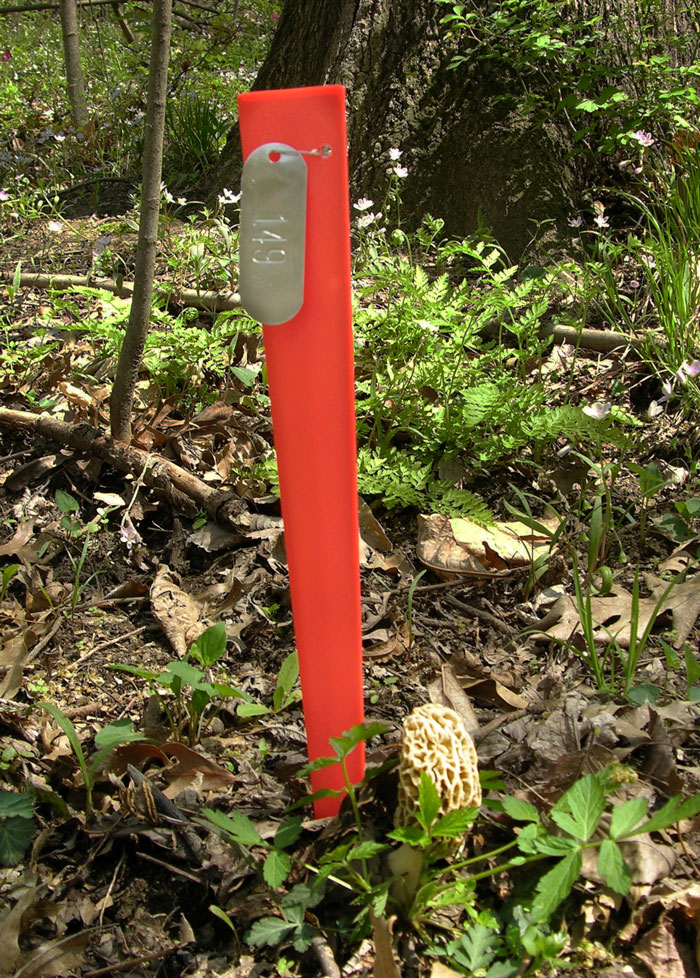Taking an environmentally sensitive approach to pest management
Mushroom Hunters Be Wary of Flooded Areas
Published: April 30, 2019
Bountiful harvests of delicious morel "mushrooms" (also termed ascocarps) have been occurring throughout Missouri in the last few weeks, fueled by persistent wet weather and steady spring temperatures. The wettest winter since 1984-85 and spring rains also resulted in a torrent of March flooding and record river crests in the Bootheel and northern areas of the state along the Missouri river (i.e. 173,000 acres in Atchison, Holt, and Buchanan counties). As the mushroom harvest moves north, mushroom hunters should be wary of flooded areas and restrict harvesting from them.

Morel fruiting at the MU Horticulture and Agroforestry Research Center. Image from a study of morel fruiting patterns associated with woody plants. – Mihail
Morels and all mushrooms are "oysters of the earth". Oysters are filter feeders, taking up their nutrition, and sometimes pollutants, from ocean water. If oysters are harvested and eaten during the summer months, sickness may result caused by toxin accumulation from algal blooms residing in the oysters. Similarly, fungi acquire their nutrition through absorption and can take up toxins from flood waters. Flood waters are often contaminated with sewage that may contain human pathogens, chemicals such as pesticides, rubber or petroleum products, and even sharp metal or glass objects. Any of these will ruin your meal, so know where the morels have been collected from, and inspect and clean them thoroughly prior to eating them.
*Significant flooding is currently expected along the Mississippi river and perhaps other areas of Missouri in the next week (April 30 – May 5, 2019).
Current river information resources are accumulated by our state climatologist Dr. Pat Guinan, and can be found at http://agebb.missouri.edu/weather/river.htm.
This article is preceded by a University of Nebraska post which can be found here – https://extension.unl.edu/statewide/stanton/be-mindful-of-flooded-areas-when-hunting-morels/.
Subscribe to receive similar articles sent directly to your inbox!
REVISED: February 21, 2017